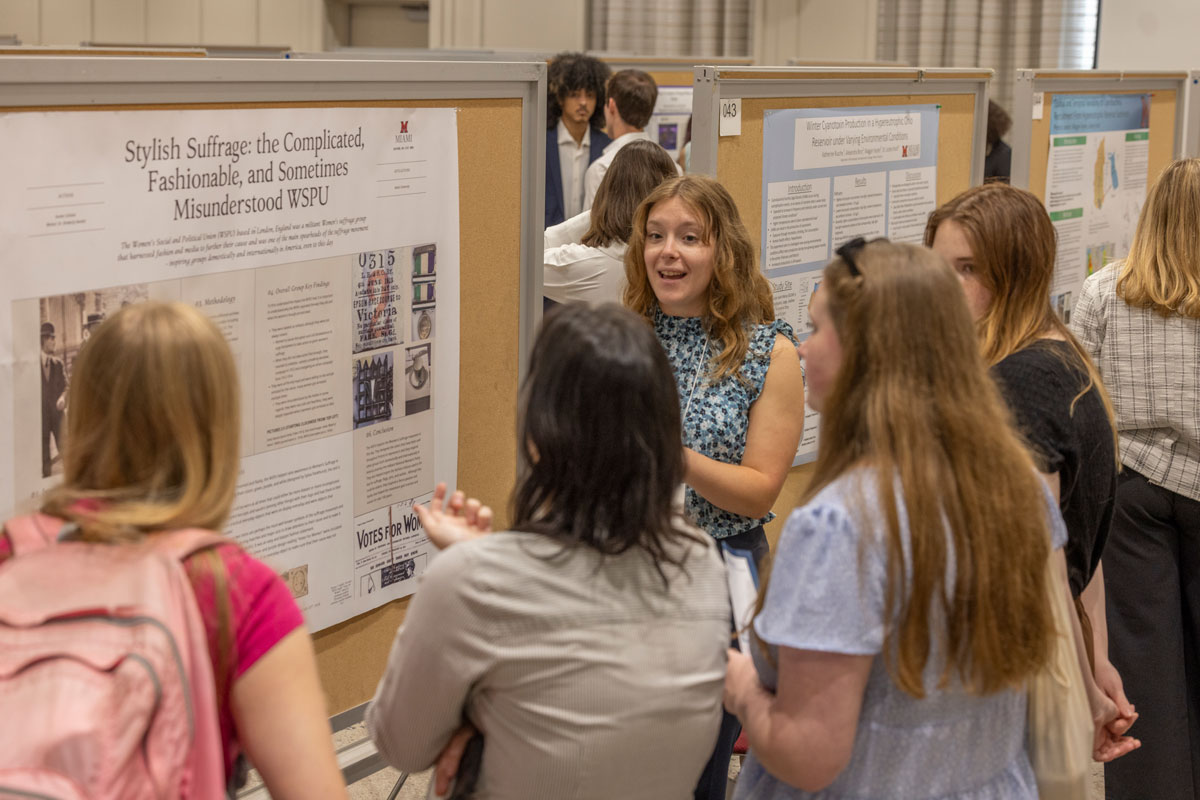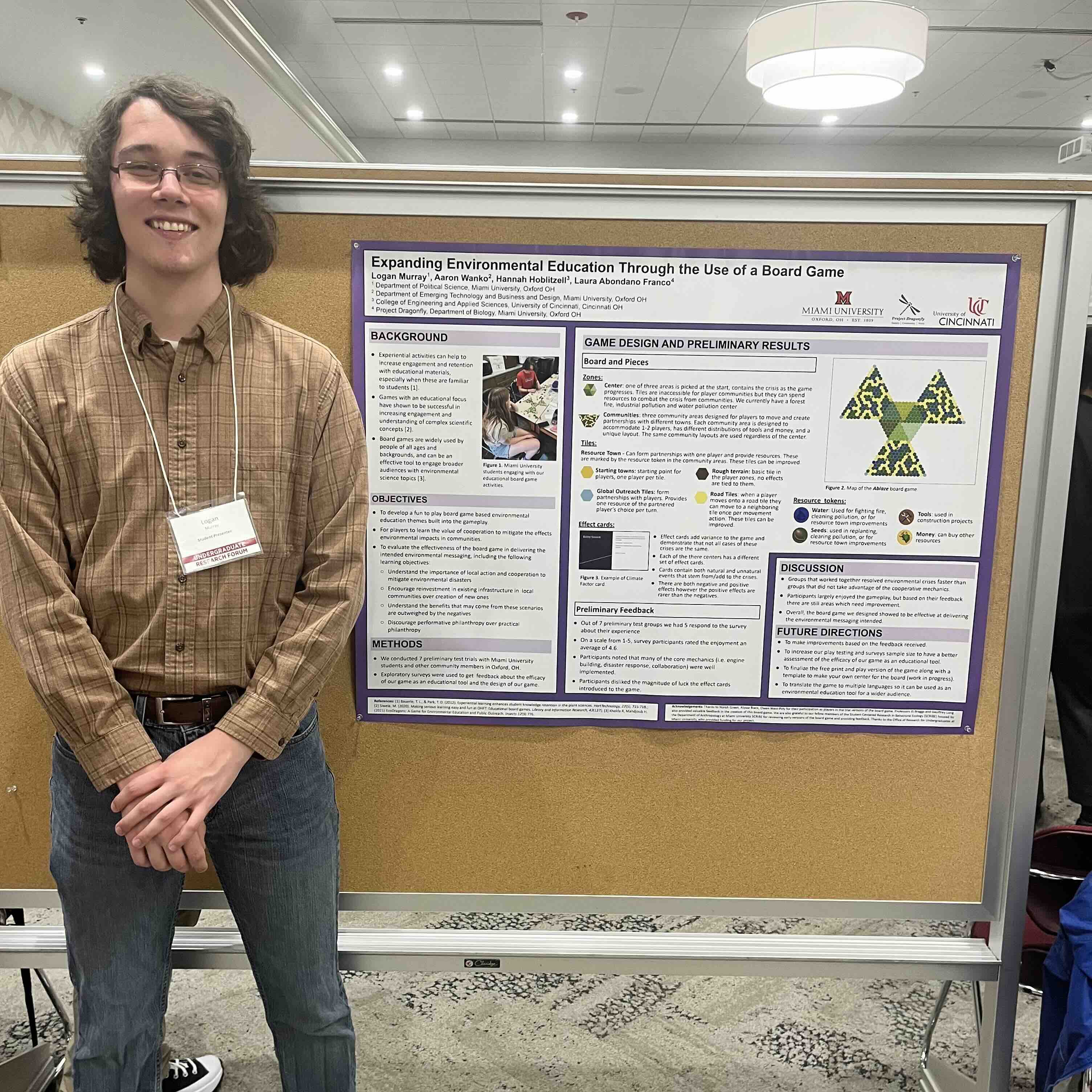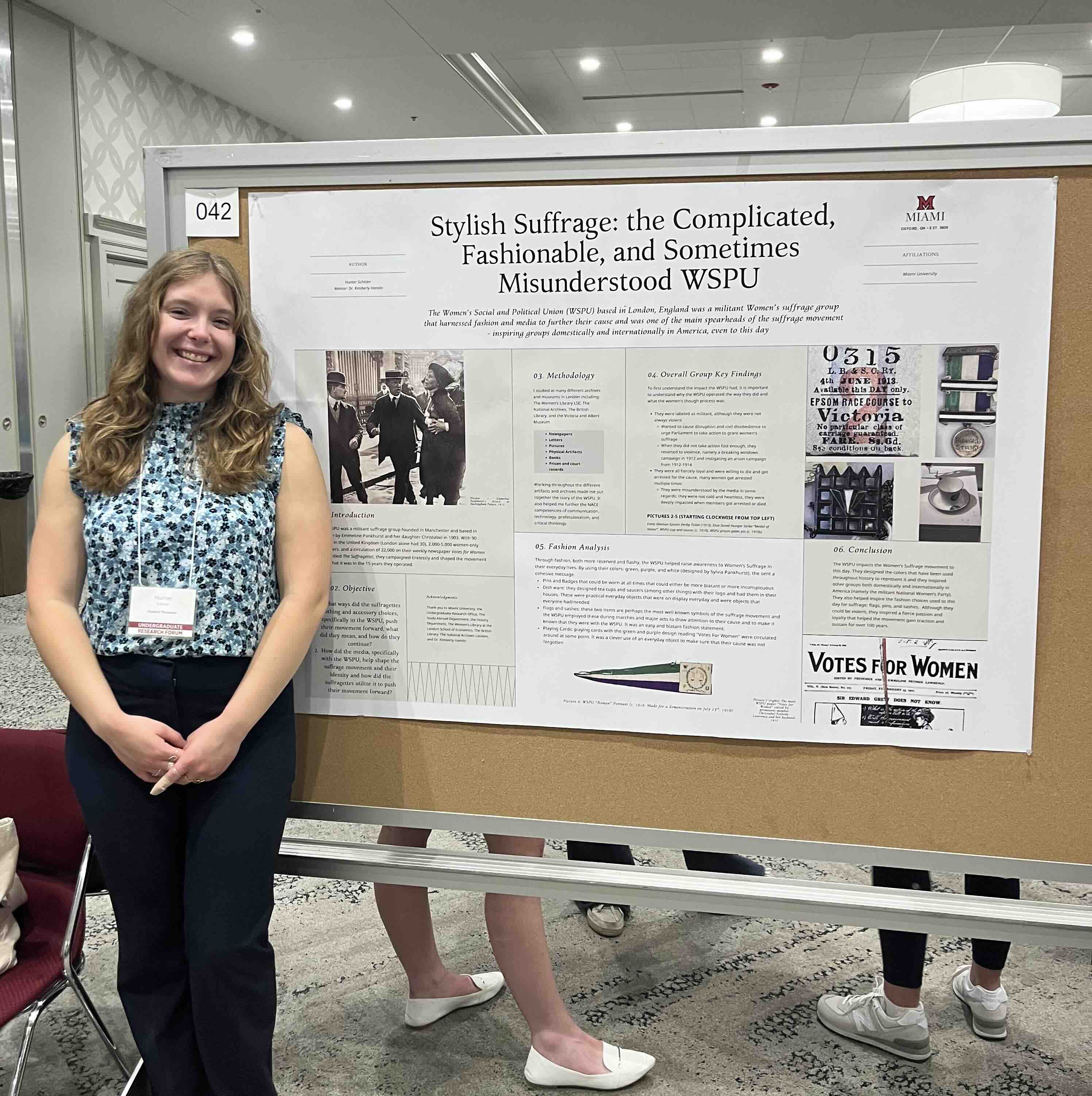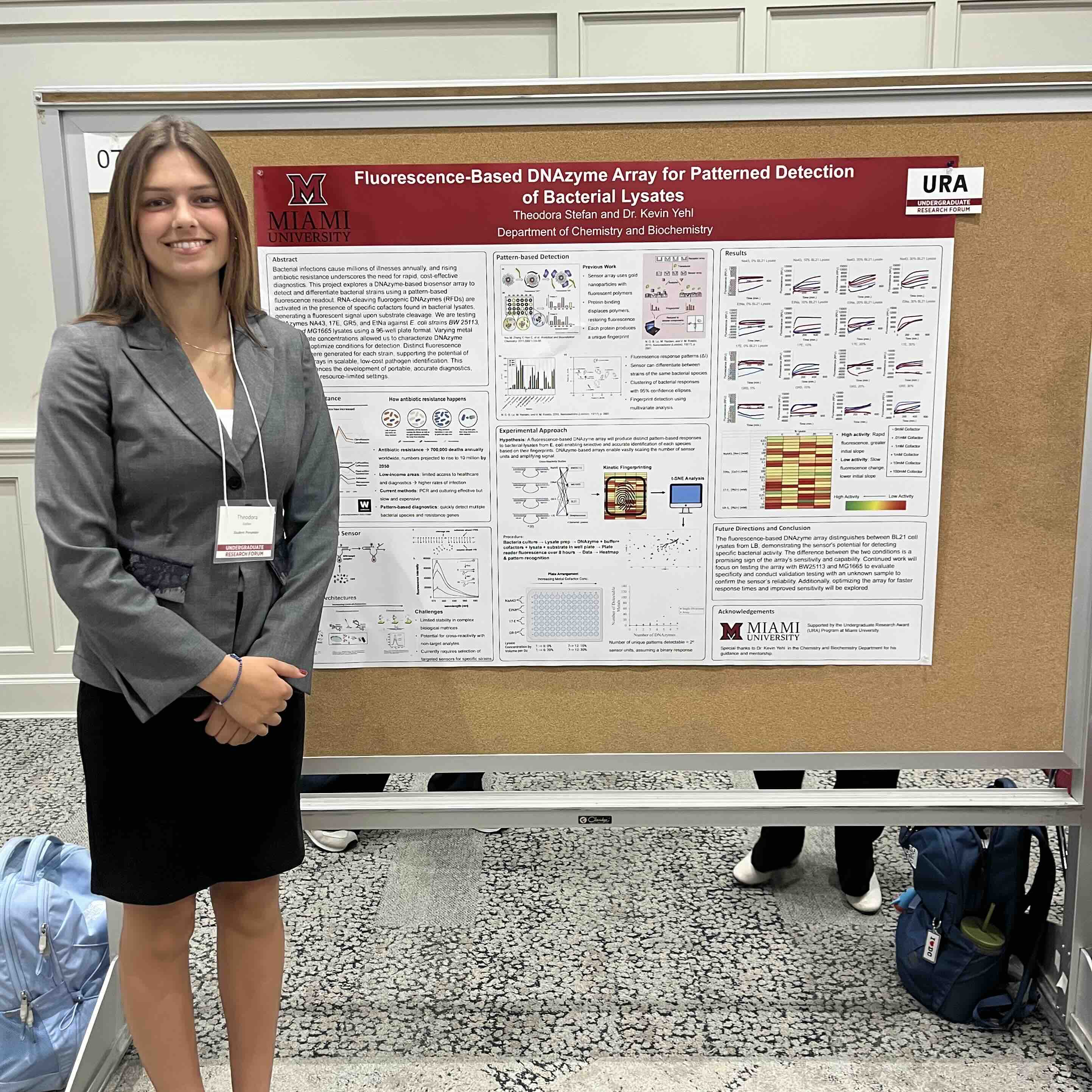Students from all across CAS showcase their innovative and creative independent projects
CAS students showed up in force at the annual Undergraduate Research Forum, presenting on a wide variety of topics.

Students from all across CAS showcase their innovative and creative independent projects
Each year Miami undergraduate students have the culminating opportunity to show off their research at the Undergraduate Research Forum – a stage for innovation and creativity. It is also a window into what issues are pertinent to students and where they are focusing their career ambitions.
Among all the presentation sessions, CAS students made up the majority of research inquiries, from zoological studies of local bat populations to media analyses of reality television.
Here are a few examples of how CAS students pooled their resources and knowledge banks to create innovative research studies.

Expanding environmental education through the use of a board game
Logan Murray, a Political Science major, set out to create a novel way to teach environmental education that is both fun and informative.
His research team came together with students in different departments and colleges, and even one student from a different university. In collaboration with Emerging Technology in Business and Design major Aaron Wanko and Environmental Engineering major Hannah Hoblitzell from the University of Cincinnati, the group built a board game that checks all their educational interest boxes.
Their game, Ablaze, presents ecological disaster scenarios to players with the goal of resolving the crisis much like it would be done in the real world. The game is customizable to different environmental crises including forest fires, industrial pollution, and water pollution game modes.
Initial testing and surveying showed their environmental education messaging was getting across to players, according to Murray, but there are many areas the group wants to change and improve for more accessible and entertaining play.
“We wanted players to learn something from the game but still have fun,” Murray said. “We did a lot of testing with different players to make sure they could follow the game and want to keep playing.”
Murray said pulling together the group brought everyone’s expertise to the table while allowing one another to further explore environmental issues and learn a bit about each persons’ field.

Stylish suffrage: The complicated, fashionable, and sometimes misunderstood WSPU
Political Science and Marketing double major Hunter Schisler combined her research interest in politics and fashion to showcase the Women’s Social and Political Union’s (WSPU) fight for suffrage.
The WSPU arose in the UK in the early 20th century. In her poster presentation, Schisler completed a fashion analysis on the WSPU and explained how links in clothing choice fueled the women’s suffrage movement in London and ultimately inspired such movements in the United States.
Not only that, but Schisler also gave a 10-minute oral presentation on a completely different topic, entitled, “ISIS: The slow formation of the pivotal group of modern terrorism.”
“The most crucial part is understanding how ISIS harnessed the media in a way that had never been done before and how they became the cornerstone of modern terrorism so that their ideology continues to this day,” Schisler wrote in her introduction to the topic.

Managing and mitigating antibiotic resistance in underrepresented populations
Thea Stefan, a Biochemistry major with a Premedical and Pre-Health Studies co-major, presented her research, “Fluorescence-based DNAzyme array for patterned detection of bacterial lysates.” Her work is an investigation of what technology can be created to detect certain bacterias to confirm diagnoses and prevent overprescribing of antibiotics.
Stefan collaborated in labs with many of her peers during the project, which added to her research process experience.
“I enjoyed the collaboration in the lab,” Stefan said. “I had a lot of classes with the people who were in the lab, and I enjoyed being able to use the skills I learned in class in the real-world experiences that I was focusing on.”